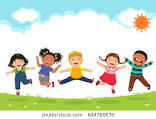“It is paradoxical that many educators and parents still differentiate between a time for learning and a time for play without seeing the vital connection between them.”
-Leo F. Buscaglia
“Play is so integral to childhood that a child who does not have the opportunities to play is cut off from a major portion of childhood.”
-Musselwhite
“Children need the freedom and time to play. Play is not a luxury. Play is a necessity.”
-Kay Redfield Jamison
During my early years, play was an important part of life. Without recognizing the benefits at the time, I enjoyed play time because I was able to interact with friends and even make new friends. Through my studies in early childhood, I realized how play can encourage social, physical, and cognitive development.
 Playing with doll babies was very interesting to me. I believe this was role playing. I treated the baby like my mom would treat my baby brother. I think this explains why I would treat my brother as if he was my “doll baby.” I helped my mother feed him and would want to look after him while she did other household chores. Even now, I treat my baby brother as if he was my son instead of my brother.
Playing with doll babies was very interesting to me. I believe this was role playing. I treated the baby like my mom would treat my baby brother. I think this explains why I would treat my brother as if he was my “doll baby.” I helped my mother feed him and would want to look after him while she did other household chores. Even now, I treat my baby brother as if he was my son instead of my brother.
Another form of play that I enjoyed is playing games with other children. I believe that playing team-based games helped me to learn how to cooperate and develop strategies with others in order to attain a common goal.

This type of play creates a foundation that I will later learn the importance of everyone completing their task for the common good. For example, I loved playing kickball when I was younger. Members on the team were responsible for different positions. You had a pitcher and people who were designated for first, second, third, and home bases. And there were also people in the outfield (similar to baseball) for those kickers who could kick a far distance. This type of play is essential in the early years to help children learn that individualism is important even in a team. A team effort utilizes each person’s strengths.
While growing up, physical activity was important for children in school. Physical education was required and was a lot of fun. During that time, obesity among children was not as common as it is today. Even if educators did not consider other benefits for play, they thought it was important to allow physical activity for children during the day to combat obesity that leads to other health issues.
I have noticed a difference in play of my early years in relation to play for children today. When I was younger, you could ride through neighborhoods and see children outside playing games or exploring. Today, the neighborhoods are a little empty because children are mostly inside either on computers, gaming systems, or watching television. And they do not play the games that we use to play.
The girls are not familiar with jump rope and are unfamiliar with double dutch, which helps develop motor skills and uses the brain for feet coordination.

Parents, educators, administrators, and advocators must understand the importance of play. According to the National Association for the Education of Young Children (NAEYC), there are quite a few benefits to children’s play:
- Play is a child’s context to learning
- Play reduces stress
- Play is healthy
- Play encourages learning and development of skills
These benefits should be reason enough to discourage policy makers from taking away play from the curriculum for our young children. Although school systems try to adhere to national standards, it is equally important to focus on the children as individuals. Children’s play can highlight their strengths and interests.














 Playing with doll babies was very interesting to me. I believe this was role playing. I treated the baby like my mom would treat my baby brother. I think this explains why I would treat my brother as if he was my “doll baby.” I helped my mother feed him and would want to look after him while she did other household chores. Even now, I treat my baby brother as if he was my son instead of my brother.
Playing with doll babies was very interesting to me. I believe this was role playing. I treated the baby like my mom would treat my baby brother. I think this explains why I would treat my brother as if he was my “doll baby.” I helped my mother feed him and would want to look after him while she did other household chores. Even now, I treat my baby brother as if he was my son instead of my brother.


